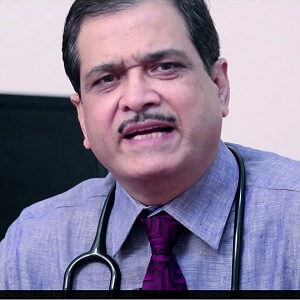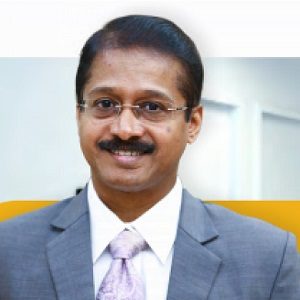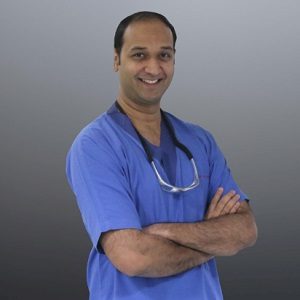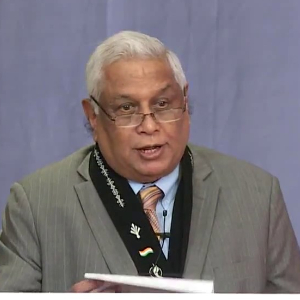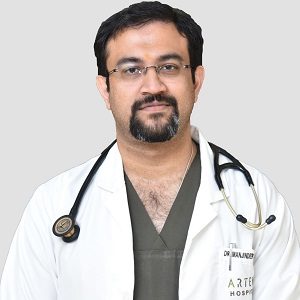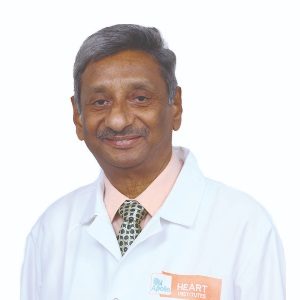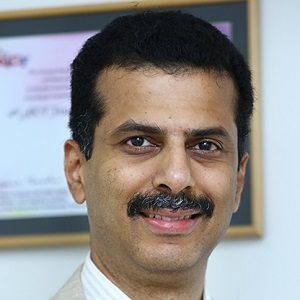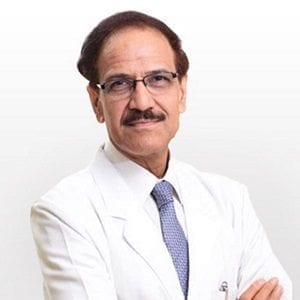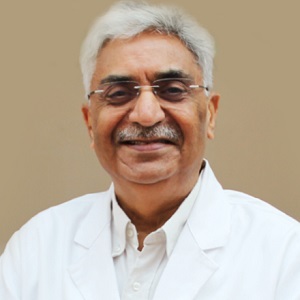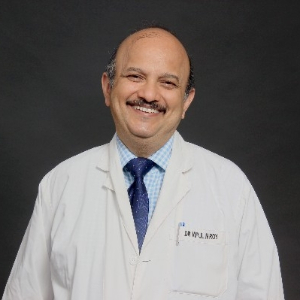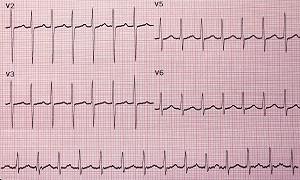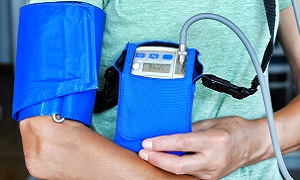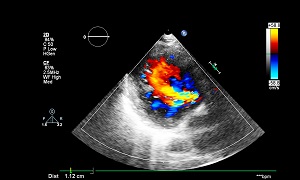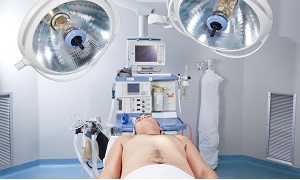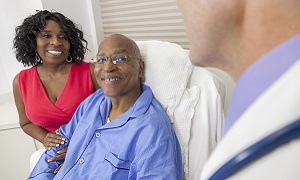Best Permanent Pacemaker Implantation Doctors in India
- Interventional Cardiologist, New Delhi, India
- Over 26 years experience
Profile Highlights:
- Dr. Rajeev Kumar Rajput is one of the best Cardiologists in India with nearly 23 years of experience. He is a clinical cardiologist engaged in diagnosing and treating cardiovascular diseases.
- Dr. Rajput is currently working as a senior consultant with Indraprastha Apollo Hospitals, New Delhi, and also offers patient care at the Heart & Gynae Clinic.
- Dr. Rajeev Kumar Rajput specializes in Angiography and Interventional Cardiology. The treatments provided involve Neonatal and Infant cardiac surgeries, Device Closure, and Valve replacement. He has expertise in Aortic Aneurysm Surgery, Vascular Surgery, Percutaneous Coronary Interventions, Endovascular Repair, Cardiac Catheterisation, Open Heart Surgery, and MV replacement.
- Dr. Rajput is credited with publishing several papers in noted medical journals.
- Interventional Cardiologist, Chennai, India
- Over 22 years’ experience
Profile Highlights:
- Dr. Rakesh P Gopal is an Interventional Cardiologist who has done outstanding work in Interventions for Valvular Heart Disease, Mitral, Aortic, Pulmonary Balloon Valvotomy, and Initiation for Trans Aortic Valve replacement.
- He is the editor of the book Cardiovascular Interventional Trials Update, published by Mathew Foundation and Asia Pacific Interventional Cardiology India Educational Trust.
- Dr. Gopal is a firm believer in the No Re-use idea of disposable materials in interventional procedures.
- Interventional Cardiologist, Chennai, India
- Over 15 years’ experience
Profile Highlights:
- Dr. Sai Satish is an internationally celebrated young cardiologist from Tamil Nadu with expertise in the management of heart-related problems.
- With 15+ years of experience, he assisted patients with symptomatic Aortic stenosis, blood vessel blockages, and heart failure.
- He started a series of structural heart programs for those who are executing structural heart therapies and need to advance them with the best practices. The summit drew over 300 heart surgeons and 350 cardiologists.
- Interventional Cardiologist, Mumbai, India
- Over 40 years’ experience
Profile Highlights:
- Dr. Samuel Mathew is famously known as the Father of Angioplasty in India for being the first to introduce the procedure in the country.
- He is a renowned interventional cardiologist and brought in several innovative techniques of angioplasty with coronary Stenting, Carotid Stenting, Percutaneous Bypass, Rotablator Atherectomy, and other such procedures.
- Dr. Mathew holds over 4 decades of experience in interventional cardiology and has performed more than 10,000 angioplasties till date. He also holds the credit for more than 3000 Intra Coronary Stenting and 800 Rotablation cases.
- Cardiologist, Gurugram, India
- Over 15 years’ experience
Profile Highlights:
- Dr. Sanjat Chiwane is an MCI Certified young cardiologist in Gurugram.
- His career success measured 1200+ coronary angioplasties, 100 Balloon mitral valvuloplasties, and 100 renal angioplasties.
- Continuing with his meticulous career, the doctor also worked as a Clinical Instructor in Medicine and Cardiology at Mumbai University. He added Organ Transplantation to his expertise.
- Interventional Cardiologist, Chennai, India
- Over 38 years’ experience
Profile Highlights:
- Dr. I Sathyamurthy is a veteran Cardiologist and has an experience of more than 38 years in Interventional Cardiology.
- Dr. Immaneni Sathyamurthy is a distinguished personality who bagged Padma Shri, the fourth-highest Indian civilian award. In addition to it, he was conferred many awards for his contribution to the medical sciences.
- He has over 250 publications to his credit, some of these are used as textbooks in medical courses.
- Interventional Cardiologist, Chennai, India
- Over 31 years’ experience
Profile Highlights:
- Dr. G Sengottuvelu is an accomplished Interventional Cardiologist in Chennai.
- He is an expert at managing complex PCI & stenting surgeries and structural heart interventions, including percutaneous heart valve replacement & repair (TAVI / TAVR, mitral clip, etc.).
- Dr. Sengottuvelu carried out around 20000 procedures in his 25 years career. He was a pioneer of the transcatheter valve program in the Apollo Group of Hospitals in 2015, performing the first TAVR.
- Interventional Cardiologist, New Delhi, India
- Over 20 years’ experience
Profile Highlights:
- Dr. Subhas Chandra is a leading Interventional Cardiologist who holds close to 20 years of experience and specializes in coronary interventions, endovascular interventions, device implantation, and structural heart diseases.
- He has performed more than 25,000 coronary interventions (complex angioplasty and rotablation), 4000+ for structural heart diseases, and has done more than 3000 permanent pacemaker implants.
- Vascular Surgeon and Interventional Cardiologist, Gurugram, India
- Over 30 years’ experience
Profile Highlights:
- Dr. T S Kler is undoubtedly one of the best vascular surgeons not only in India but also abroad. He has performed more than 25,000 Surgeries in his life which makes him stand where he is.
- He is a pioneer in electrophysiology & he established the first dedicated Electrophysiology department in India at Fortis Escorts Heart Institute.
- Dr. T S Kler initiated a radio Frequency Ablations programme at Escorts in 1993, one of the first of its kind in India. He was the first doctor in India to implant an ICD, CRT-P & CRT-D.
- Interventional Cardiologist, New Delhi, India
- Over 30 years’ experience
Profile Highlights:
- Dr. Vipul Roy is one of the best practicing Cardiologists in India, currently associated with the Indraprastha Apollo Hospital in New Delhi.
- After completing his MD, Dr. Roy travelled to UK where he spent eight years in Liverpool at Regional Adult Cardiothoracic Center.
- In 1994, he came back to India and joined Interventional Cardiology at Escorts Heart Institute in New Delhi as a consultant.
Best Pacemaker Implantation Hospitals in India
Paras Hospital, Gurugram
- City: Gurugram, India
Hospital Highlights:
- Paras hospital was established in 2006 and is the 250 bedded flagship hospital of Paras Healthcare.
- The is supported by a team of doctors of international and national repute.
- The hospital is NABH accredited and also the first hospital in the region to have a NABL accredited laboratory.
- The hospital provides specialty medical services in around 55 departments including Neurosciences, Joint Replacement, Mother & Child Care, Minimal Invasive Surgery, Gynecology and Obstetrics, Ophthalmology, Dermatology, Endocrinology, Rheumatology, Cosmetic and Plastic surgery.
- The hospital is equipped with state-of-the-art technologies.
S L Raheja Hospital, Mahim, Mumbai
- City: Mumbai, India
Hospital Highlights:
- SL Raheja hospital is a 140-bed multi-specialty tertiary care hospital that is being managed by Fortis Healthcare Ltd.
- The hospital is a benchmark in healthcare and medical facilities in the neighborhood of Mahim & the western suburbs.
- L.Raheja Hospital, Mahim has one of the most effective ICU and Casualty care services.
- The hospital provides specialty medical services in Cardiology, Oncology, Neurology, Orthopedics, Mother & Child Care, and in Diabetes.
Wockhardt Hospitals, Mumbai
- City: Mumbai, India
Hospital Highlights:
- Wockhardt Hospitals were established in the year 1973, originally called First Hospitals and Heart Institute.
- Wockhardt Hospitals are super specialty health care networks in India, nurtured by Wockhardt Ltd, India’s 5th largest Pharmaceutical and Healthcare company.
- Wockhardt Hospitals is associated with Partners Harvard Medical International, an international arm of Harvard Medical School, USA.
- Wockhardt Heart Hospital performed India’s first endoscopic heart surgery.
- The hospital has a state-of-the-art infrastructure equipped with the latest technologies and modern equipment.
- It has special Centers of Excellence dedicated to the major specialties to provide hassle-free and high-quality clinical care.
Pushpawati Singhania Hospital & Research Institute, New Delhi
- City: New Delhi, India
Hospital Highlights:
- Established in 1996, Pushpawati Singhania Research Institute is one of the top hospitals in the NCR region, as well as one of the top facilities in India for gastroenterology. The hospital is one of South Asia’s first institutes in medical and surgical treatment for diseases related to digestion.
- The hospital is equipped with state-of-the art facilities coupled with the latest equipment as well as renowned consultants from various parts of India as well as other parts of the world.
W Pratiksha Hospital, Gurgaon
- City: Gurugram, India
Hospital Highlights:
- W Pratiksha Hospital, Gurugram, is one of the best hospitals in the NCR region. It is also a top hospital in India for IVF. Since its inception, the hospital has performed over 5500 successful IVFs. The hospital also specializes in gynecology.
- With over 20 years of experience in providing quality healthcare, the hospital is known as one of the most trusted and valued health providers in India.
- Equipped with world-class medical facilities and advanced technology, the hospital’s doctors and clinicians also have a track record of delivering excellent results. The hospital is also known for focusing on preventive well-being as much as on curative treatment.
- The hospital has earned the trust of its patients, by providing the best available treatments at affordable costs.
Narayana Superspeciality Hospital, Gurugram
- City: Gurugram, India
Hospital Highlights:
- Situated near DLF Cyber City, Gurugram, Narayana Superspecialty Hospital is one of the top medical facilities in the Delhi NCR region, catering to the needs of the people. Known for its commitment to quality medical care and patient service, the hospital is a state-of-the-art facility with planned and well-equipped sections, which includes a spacious OPD area as well as comfortable patient rooms.
- It is the closest super-specialty hospital from Indira Gandhi International Airport towards Gurugram, and also the nearest super specialty hospital from DLF Cyber City. It is also close to major residential areas in Gurugram.
- It is part of the renowned Narayana Health Group. Established in 2000, by Dr. Devi Shetty, a renowned cardiac surgeon, it has grown to be one fo India’s leading healthcare groups.
Sir Ganga Ram Hospital, New Delhi
- City: New Delhi, India
Hospital Highlights:
- Sir Ganga Ram Hospital, New Delhi is known to provide the latest medical procedures with the latest technology in all of its units.
- The hospital has a team of reputed doctors, nurses, and healthcare professionals that ensure that patients receive quality care at affordable costs.
- Staffed with a team of highly qualified doctors, dedicated nurses, and paramedical and non-medical staff, the hospital aims to lead in healthcare delivery, medical education, training, and research.
- As per the vision of the founder, the hospital also provides free treatment to the economically weaker sections of society.
- Sir Ganga Ram Hospital also provides training to young doctors under the Diplomate in National Board(DNB) program. The DNB program at the hospital was started in 1984 and it is known for currently running the maximum number of DNB specialties in the country. It also has the distinction of having the first bone bank in India.
KIMS Hospital, Hyderabad
- City: Hyderabad, India
Hospital Highlights:
- KIMS Hospital (a brand name of Krishna Institute of Medical Sciences) is one of the largest and best multi-speciality hospitals in Hyderabad. The hospital provides various treatments to an enormous number of patients.
- The hospital has a capacity of more than 3000 beds. KIMS Hospitals offers different healthcare services in more than 25 specialities and super specialities.
- The hospital is equipped with modern medical equipment and technology. It has robotic equipment to provide minimal invasive techniques for patients.
- The hospital is aimed at providing world-class healthcare facilities and services at an affordable cost for patients.
- The various specialities and departments of the hospital include neurosciences, gastroenterology & hepatology, robotic science, reproductive sciences, dental science, oncological sciences, organ transplantation, heart and lung transplantation and mother and child care.
Fortis Hospital, Shalimar Bagh
- City: New Delhi, India
Hospital Highlights:
- Fortis Hospital in Shalimar Bagh is a multi-super specialty hospital that strives to provide world-class patient care by leaving no stone unturned.
- Fortis, Shalimar Bagh, with 262 beds and a 7.34-acre footprint, provides the best level of medical care through its team of doctors, nurses, technicians, and management professionals.
Reliance Hospital, Mumbai
- City: Mumbai, India
Hospital Highlights:
- Reliance Hospital is one of the best super-specialty care hospitals in Navi Mumbai.
- The main purpose of this hospital is to become a trustworthy place for the best health and hope for society. The hospital is well connected to the suburbs of Mumbai and Navi Mumbai.
- The hospital has various specialty departments, viz., Accident & Emergency, Anesthesiology, Dental Services, Dermatology, Diabetology, Dietetics Nutrition, Endocrinology, ENT, Gastroenterology, General Surgery, Gynaecology And Obstetrics, Hepato Pancreato Biliary Surgery, Infectious Disease, Internal Medicine, Interventional Radiology, Laboratory Medicine, Minimal Access Laparoscopic Surgery, Nephrology, Neurosciences, Opthalmology, Orthopaedics, Paediatrics, Pain Management Palliative Care, Physical Medicine Rehabilitation, Plastic And Reconstructive Surgery, Psychiatry, Pulmonary Medicine, Radiology, Rheumatology, Transplant, Urology Andrology, Vascular Surgery
Pacemaker Implantation
Pacemaker is a small device that is implanted under the skin in the chest which monitors the heartbeat & controls the heart rhythm.
A pacemaker has two parts:
1. The pulse generator- This is small metal container that houses the battery & the electrical circuit that regulates the rate of electrical pulses sent to the heart.
2. Electrodes or leads- They are insulated wires placed in the heart chambers which delivers electrical pulses to adjust the heart rate.
Types of Pacemakers
There are three types of Pacemakers:
- Single Chamber Pacemaker- They carry electrical impulses from the generator to the right ventricle of the heart.
- Dual Chamber Pacemaker- They carry electrical impulses from the generator to the right atrium & right ventricle, both.
- Biventricular Pacemaker- They simulate the right & left ventricles both, so that the heart beats more efficiently. It is a treatment option for people suffering from heart failure.
Indications for Pacemaker
Pacemakers are used to treat the following:
- Cardiomyopathy
- Heart failure
- Slow heart rhythms also known as bradyarrythmia.
- Syncope
Tests done before Pacemaker Implantation
Electrocardiogram
Holter Monitoring
Echocardiogram
Stress Test
Pacemaker Implantation procedure
Before the procedure
- Do not eat or drink anything after midnight the evening before the procedure.
- Stop taking certain medications like diabetes 1 to 5 days before the procedure.
During the procedure
Pacemakers are implanted in 2 ways:
- Endocardial approach- This approach is commonly used for pacemaker implantation. In this approach, local anaesthesia is administered to numb the area where an incision is made. Through an incision the lead is inserted into a vein, then advanced to the heart with the help of the x-ray machine. One end of the lead is attached to the heart muscle, while the other end of the lead is attached to the pulse generator, which is placed in a pocket created under the skin in the upper chest.
- Epicardial approach- This approach is commonly used in children. In this approach, general anaesthesia is administered. One end of the lead is attached to the heart muscle, while the other end of the lead is attached to the pulse generator, which is placed in a pocket created under the skin in the abdomen.
After the procedure
Special precautions
- Avoid placing the cell phone directly over the pacemaker implantation site when the phone is turned on.
- Avoid leaning against a metal-detection system.
- If a doctor is considering any medical procedure that involves intensive exposure to electromagnetic energy like magnetic resonance imaging, therapeutic radiation for cancer treatment, tell him /her about the pacemaker implanted.
- Stand at least 2 feet from welding equipment, high-voltage transformers or motor-generator systems.
FAQs
1. What is the recovery time for a pacemaker surgery?
The recovery time for a pacemaker surgery is 3-4 weeks.
2. Do cell phones interfere with pacemakers?
It is safe to use a mobile phone, but make sure it is kept at a distance of more than 6 inches from the pacemaker.
3. For how long do the pacemaker batteries last?
Most pacemaker batteries last for 6 to 10 years.
4. How often will the patient need follow-up appointments?
- The follow- up appointments may be every 3 to 12 months, depending on the type of pacemaker you have and how well it works

